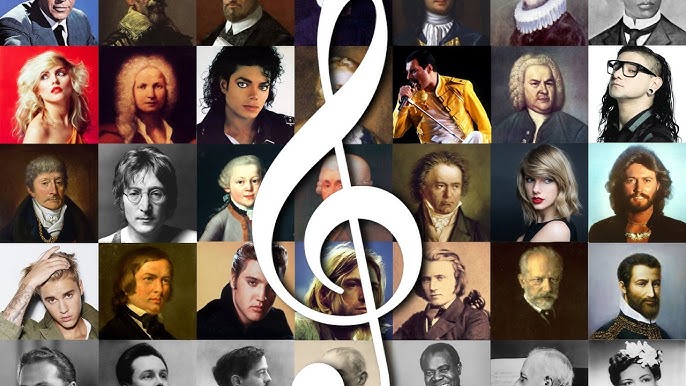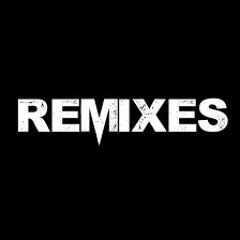
In the world of music production, one of the most crucial decisions a producer faces is how to shape the sonic foundation of a track. At the core of nearly every song lies a foundational sound something to anchor the rhythm and melody. Producers often find themselves asking: Should I build my track around a sample or a synth?
Both samples and synthesizers have unique qualities that can bring a track to life in different ways. Choosing the right one is a key part of defining your song’s overall vibe, atmosphere, and sound. Whether you’re working in genres like hip-hop, electronic, pop, or experimental, understanding the nuances of samples and synths is essential for achieving your creative vision.
In this article, we’ll explore the strengths and challenges of both samples and synthesizers, and how producers can decide which tool is best for their music.
1. Samples: The Power of the Past
Sampling has been a cornerstone of modern music production, particularly in genres like hip-hop, electronic, and pop. It involves taking a pre-existing sound or piece of music — whether it’s a drum loop, a melody, or a vocal snippet — and reworking it into a new composition. Sampling allows producers to incorporate a sense of history and nostalgia into their music, while also providing the freedom to manipulate sounds in endless ways.
Why Choose Samples?
Here’s why many producers choose samples as the foundation of their tracks:
- Instant Familiarity: Samples are often borrowed from recognizable sources like classic records, movies, or obscure sound libraries. This can evoke strong emotions in listeners, as they’re tapping into familiar sounds or iconic moments. A well-chosen sample can immediately make a track feel timeless or culturally relevant.
- Creative Freedom: Samples can be chopped, stretched, pitched, and layered to create completely new and unique compositions. The possibilities for manipulation are endless, allowing producers to craft something entirely different while still honoring the original source.
- Genre-Specific Appeal: Sampling is deeply rooted in genres like hip-hop and electronic music, where looping and reinterpreting old records is part of the artistic process. Using samples can instantly connect you to these traditions and give your track an authentic feel.
Challenges of Sampling:
While sampling offers a lot of creative potential, it also comes with its own set of challenges:
- Legal Issues: Sampling copyrighted material can lead to legal complications, especially if the sample is used without permission or if it’s not cleared properly. This has led many producers to rely on royalty-free sample libraries or create their own samples to avoid potential legal headaches.
- Limited Flexibility: While samples are great for bringing a sense of history and emotion to a track, they can sometimes feel restrictive. You’re working within the boundaries of an existing sound, which may not always match the exact vision you have for your track.
2. Synths: The Sound of the Future
Synthesizers, on the other hand, allow for endless possibilities. A synthesizer is a tool that generates sound through electronic circuits, which can be manipulated to create a vast array of tones, textures, and effects. Unlike samples, which are based on pre-recorded audio, synthesizers give you the ability to create completely original sounds from scratch.
Why Choose Synths?
There are several reasons why producers opt for synthesizers as the foundation of their music:
- Total Creative Control: Synthesizers allow you to build your sound from the ground up. With precise control over parameters like oscillators, filters, modulation, and effects, you can shape every aspect of your sound. This is especially useful for creating unique, forward-thinking compositions that stand out.
- Endless Sound Design Potential: Synthesizers excel at creating a wide range of sounds, from lush pads and sweeping leads to punchy basslines and distorted effects. The ability to tweak parameters in real-time allows for an intuitive approach to sound design, making it easier to experiment and discover new ideas.
- Consistency and Flexibility: Unlike samples, synths offer a level of consistency that can be crucial for certain tracks. Whether you’re working with analog synths or digital software synths, you can replicate the same sound over and over, which is useful when you’re building a track that requires specific tones or patterns.
Challenges of Synths:
However, working with synthesizers also comes with some difficulties:
- Learning Curve: Synthesizers, especially analog ones, can be complex and require a solid understanding of sound design. Many producers spend years mastering the art of synthesis, learning how different waveforms, filters, and envelopes interact. This learning curve can be a barrier for beginners.
- Lack of Organic Feel: While synthesizers offer incredible flexibility, they can sometimes feel sterile or artificial compared to the “human touch” found in sampled recordings. Depending on the genre and mood you’re aiming for, this may or may not be a desirable quality.
3. When to Choose Samples: Genre and Vibe
Choosing to work with samples often comes down to the vibe and genre you’re working within. Here are some cases where samples might be the better choice:
- Hip-Hop and Lo-Fi: Sampling is a core element of hip-hop and lo-fi music. The art of digging through old records to find the perfect vocal clip, drum break, or melody is a time-honored tradition. The soul and authenticity that come from these samples can give your tracks a sense of nostalgia and personality.
- Electronic and Dance Music: Producers in genres like house, techno, and trip-hop often rely on sampling to create dynamic, danceable beats. Samples from classic disco, funk, and jazz records can inject a track with groove and energy, making it easy to create something with both historical significance and modern appeal.
- Pop and R&B: Samples in pop and R&B are often used for their emotional resonance. A carefully selected vocal chop or melody snippet can transform an ordinary track into something instantly recognizable and catchy.
4. When to Choose Synths: Experimentation and Innovation
Synthesizers are the go-to tool when you want to push creative boundaries and explore new sonic landscapes. Here are a few scenarios where synths shine:
- Electronic and Experimental Music: Synthesizers are at the heart of genres like ambient, industrial, trance, and experimental electronic music. If you’re creating futuristic sounds, textured atmospheres, or want to experiment with unusual soundscapes, synths give you the flexibility to explore new territory.
- Pop and Film Scores: Synths can create both lush orchestral-style pads or futuristic leads, making them a perfect tool for modern pop and film scores. They can evoke emotions through rich, evolving soundscapes, creating everything from cinematic tension to dreamy, uplifting moments.
- Customization and Sound Design: When you need a completely original sound, a synth is the best choice. You can design sounds that are entirely unique to your track, giving you more control over the texture and feel of your music. Whether you want a throbbing bassline or a sparkling lead, a synthesizer can bring your vision to life.
5. The Hybrid Approach: Combining Samples and Synths
While the choice between sample and synth is an important one, the best of both worlds often comes from combining them. Many producers use samples for texture and synths for melody and bass, creating a fusion of the organic and the synthetic. For example:
- Use samples for rhythm and groove (chopped-up breaks, vocal snippets, etc.), and then build your synths around them for melodies, basslines, and effects.
- Combine the two by using samples as a base (e.g., a drum loop) and layering synths on top to add new textures and layers, bringing a fresh, modern edge to the sound.
This hybrid approach allows you to have the best of both worlds — the nostalgic vibe of a sample mixed with the futuristic possibilities of synthesis.
6. Conclusion: Trust Your Creative Instincts
Ultimately, the decision between using a sample or a synth should come down to what serves the song best. Some tracks are best built on the back of a familiar sample, while others demand the flexibility and originality that a synthesizer offers. Both tools are invaluable to the modern producer, and understanding when and how to use them is key to crafting a song that truly resonates.
Whether you gravitate toward the organic warmth of a sample or the boundless possibilities of synthesis, the most important thing is to stay true to your artistic vision. After all, the best tracks are the ones that come from the heart — no matter how they’re made.






